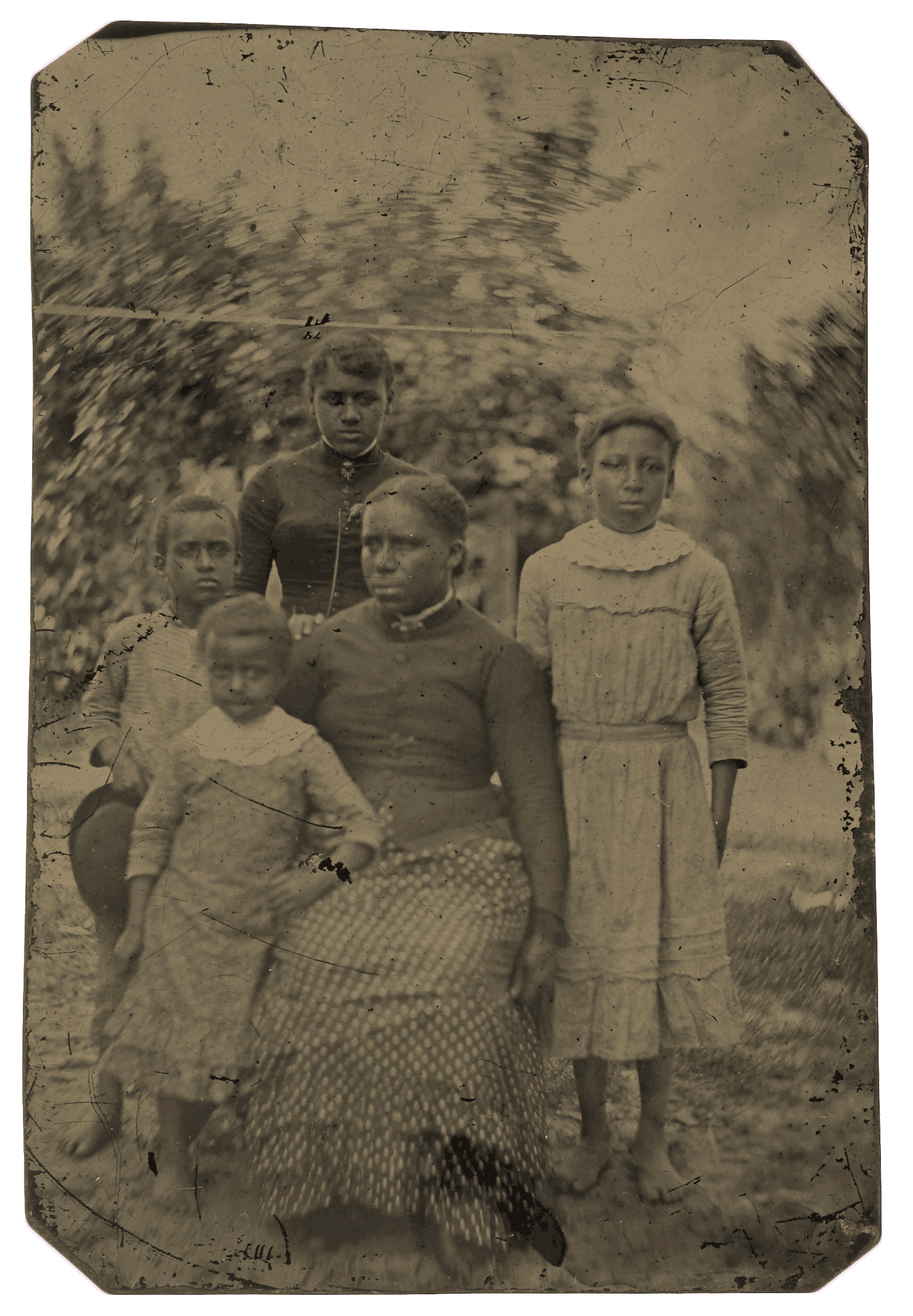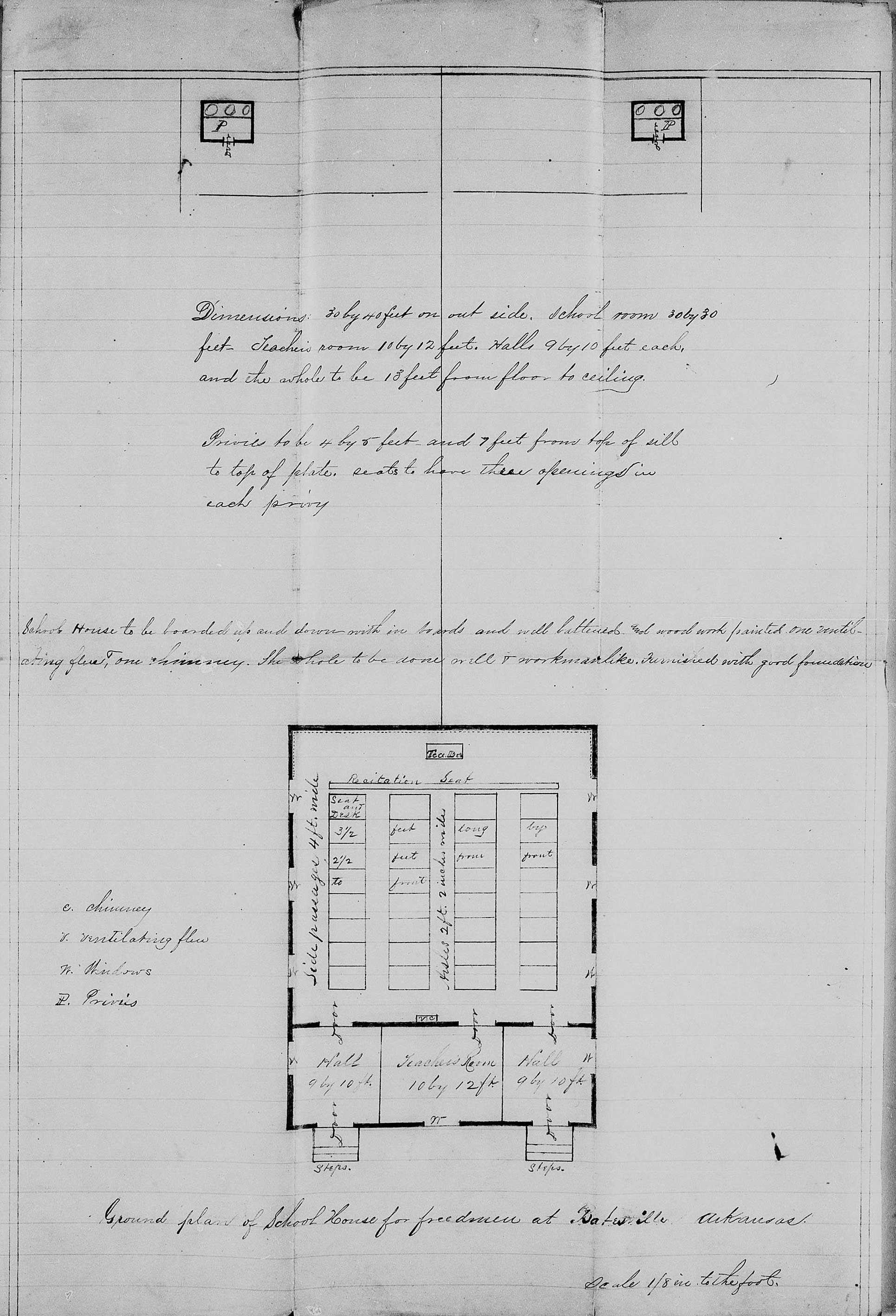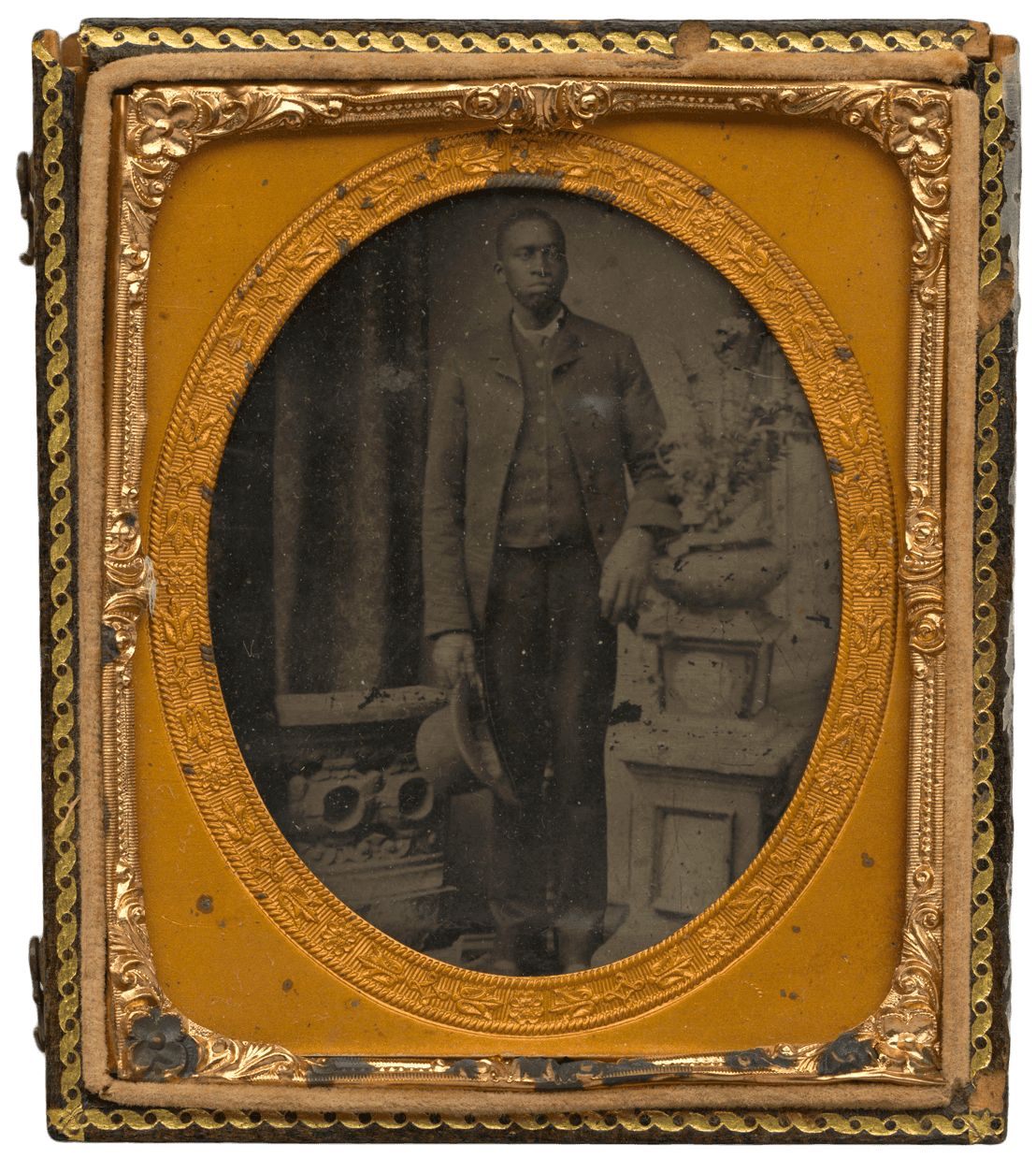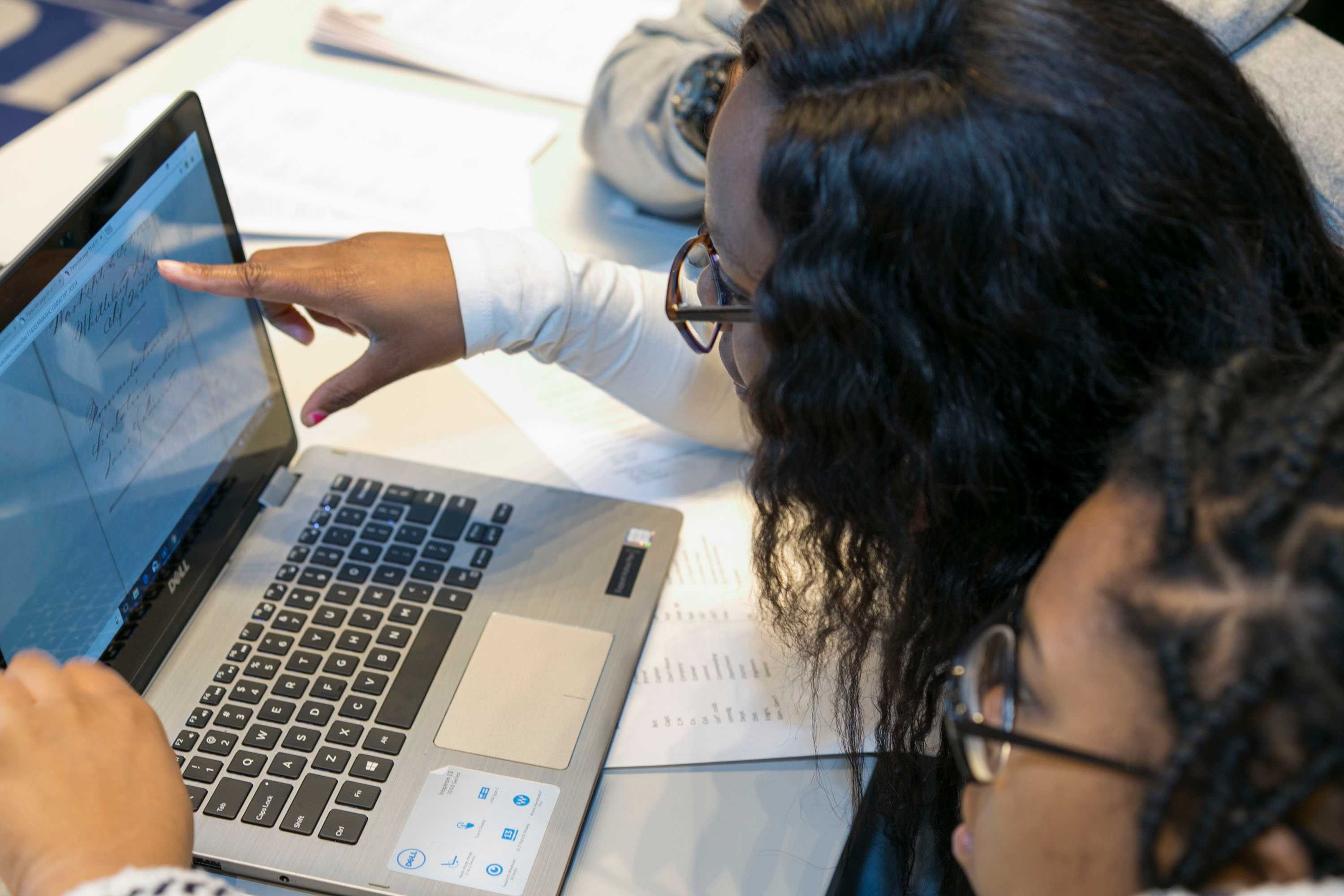
The Freedmen’s Bureau
At the end of the Civil War, Congress established the Freedmen’s Bureau to assist the four million men, women, and children emancipated from slavery. The Bureau played a major role in Reconstruction and reflected the nation’s struggle to define and fulfill its responsibility to its formerly enslaved citizens.
Founding the
Freedmen's Bureau
Drawing rations at the Freedmen’s Bureau in Richmond, Virginia, 1866
In March 1865, Congress established the Bureau of Refugees, Freedmen, and Abandoned Lands, commonly known as the Freedmen’s Bureau. This federal agency, which operated in 15 states throughout the South, provided aid to newly freed men, women, and children as they began to build new lives after slavery. The Bureau negotiated labor contracts, legalized marriages, and helped reunite families torn apart by slavery. It also litigated criminal and civil complaints through its courts and operated hospitals and schools throughout the South. Through their interactions with the Freedmen’s Bureau, African Americans fought to secure what they needed to live as free citizens, including land, family, education, safety, and justice.

The Freedmen’s Bureau Records
Freedmen’s Bureau office in Memphis, Tennessee, 1866
When it ceased operations in 1872, the Freedmen’s Bureau left behind millions of pages of written records. These records, which document the Bureau's various activities, include labor contracts, land leases, marriage certificates, hospital registers, ration orders, teachers’ reports, and testimony from civil and criminal complaints. The records also note the names of newly freed African Americans and offer glimpses into their aspirations and struggles as they forged new lives after slavery.
Records of the Freedmen’s Bureau
Explore these and other records from the Freedmen’s Bureau in the National Museum of African American History and Culture’s Freedmen’s Bureau Search Portal.

Stories from the Freedmen’s Bureau Records
Explore documents to learn how newly freed people sought to build independent lives, families, and communities.





The Bureau’s Role in
Black Education
Main Building, Howard University, 1870
Newly freed African Americans eagerly sought opportunities to gain an education—something denied to them under slavery. Establishing schools for people of all ages was a critical part of the Freedmen’s Bureau mission. By 1876, the Bureau’s efforts, in concert with the activities of African American leaders, led to free public education for both Black and white children. The Freedmen’s Bureau also supported higher education through the creation of colleges—Howard University, founded in Washington, D.C., in 1867, was named for Oliver Otis Howard, the commissioner of the Freedmen’s Bureau and a staunch supporter of African American education. General Howard used Freedmen’s Bureau funds to purchase land and construct several campus buildings.

Teacher and students at a freedmen’s school, North Carolina, ca. 1868

The undersigned Colored Citizens of this District respectfully state that there are in the vicinity nearly sixty col’d children from ten to sixteen years of age whom we would gladly send to school if a suitable building and teacher could be furnished.
Citizens of Oak Hill, North Carolina, petition to Freedmen’s Bureau, 1867
Impact of the
Freedmen’s Bureau
The Freedmen’s Bureau, 1868
Created in 1865, the Freedmen’s Bureau sought to help formerly enslaved African Americans and poor whites in the South. But its efforts were hampered by political disputes over its value and purpose. President Andrew Johnson opposed the Bureau and vetoed a bill in 1866 to extend it. Although Congress overrode his veto, the Bureau continued to struggle with limited staff and inadequate funding. Its role as a social agency was not clearly spelled out and varied by location, while its efforts to negotiate labor disputes, redistribute land, provide legal guidance, and offer medical care were viewed negatively by many southern whites. African Americans, by contrast, saw the Bureau’s efforts as helpful, particularly in the area of education. The Freedmen’s Bureau identified teachers for Black public schools and supported the creation of Howard University in Washington, D.C., Fisk University in Nashville, Tennessee, and Hampton University in Hampton, Virginia.

Join the Freedmen’s Bureau Project
The National Museum of African American History and Culture is leading a volunteer effort to transcribe the digitized records of the Freedmen’s Bureau so they can be more useful for scholars and genealogists researching the Reconstruction era. Visit the Smithsonian Transcription Center to become a digital volunteer.
